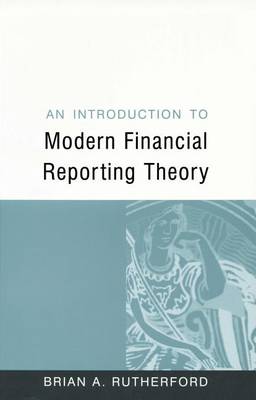The adoption by the Accounting Standards Board of its Statement of Principles for Financial Reporting in December 1999 means that we now have an authoritative conceptual framework which should govern the production of British financial statements. Yet while the text of the Statement is directed at members of the accounting profession, students of accounting will need to understand the framework and its repercussions.An Introduction to Modern Financial Reporting Theory explains the content of the Statement in an accessible language, specifically for the student of accounting and finance. This text will be of direct and practical interest to students who need to understand the contents of the new framework, which helps to explain: why and how financial reporting is carried out; why financial statements are prepared in the way that they are; why accounting standards specify one method rather than another; how the methods specified by accounting standards relate to each other; how practice has developed and will continue to develop.
Brian Rutherford emphasizes and enlarges on the key features of the framework, provides many more examples, shows how the framework applies in practice and also offers some criticisms of its content. The book clarifies to students why various methods and practices in accounting have evolved, while illustrating how they relate to each other and to the underlying function of financial reporting.
This text will be essential reading on university and professional courses in advanced financial accounting, particularly courses on Accounting Theory and Financial Reporting.
Brian Rutherford is Professor of Accounting at Canterbury Business School, University Kent at Canterbury.
- ISBN10 144626453X
- ISBN13 9781446264539
- Publish Date 21 August 2012 (first published 30 September 2000)
- Publish Status Out of Print
- Out of Print 3 April 2021
- Publish Country GB
- Imprint Sage Publications Ltd
- Format eBook
- Pages 192
- Language English
